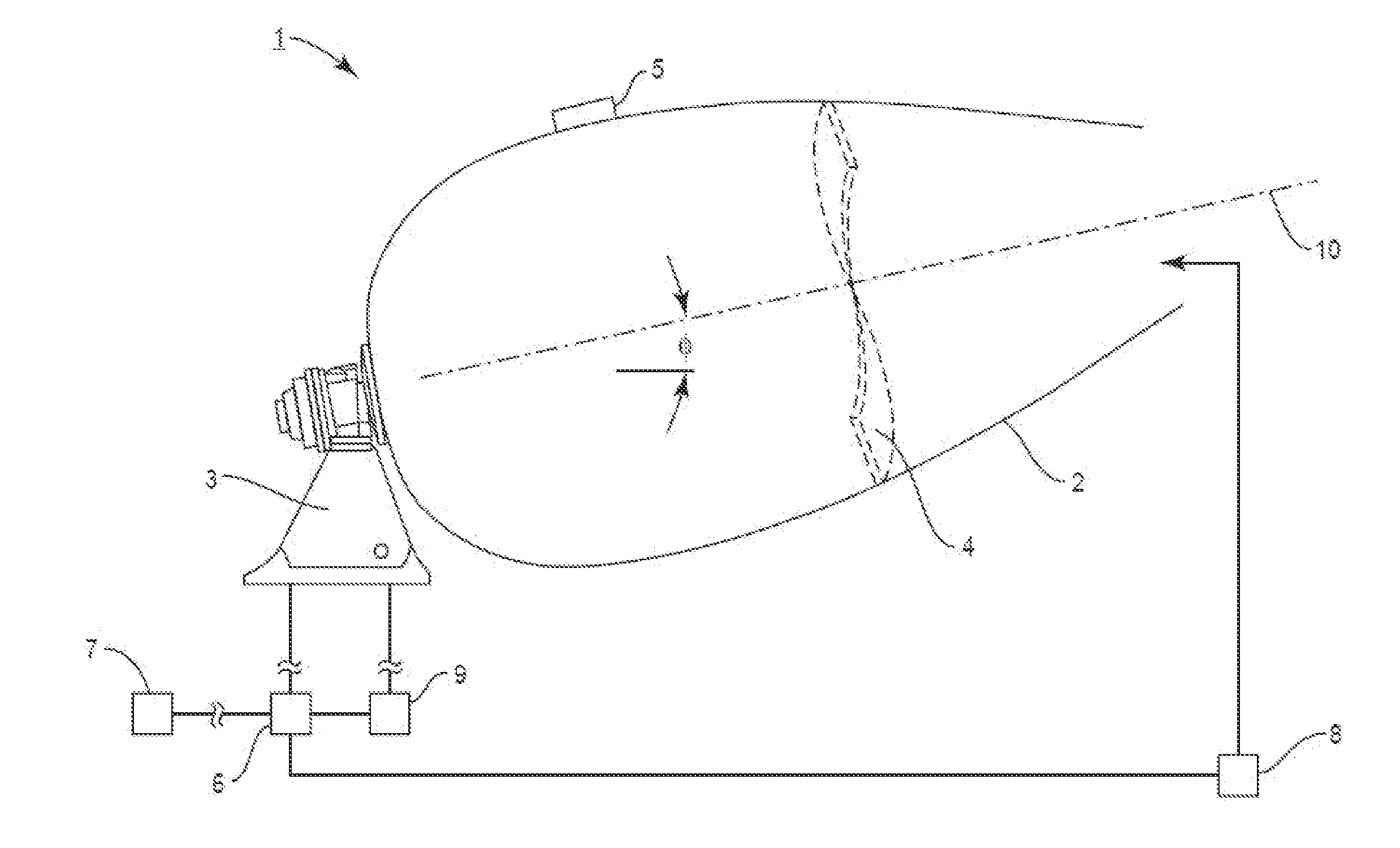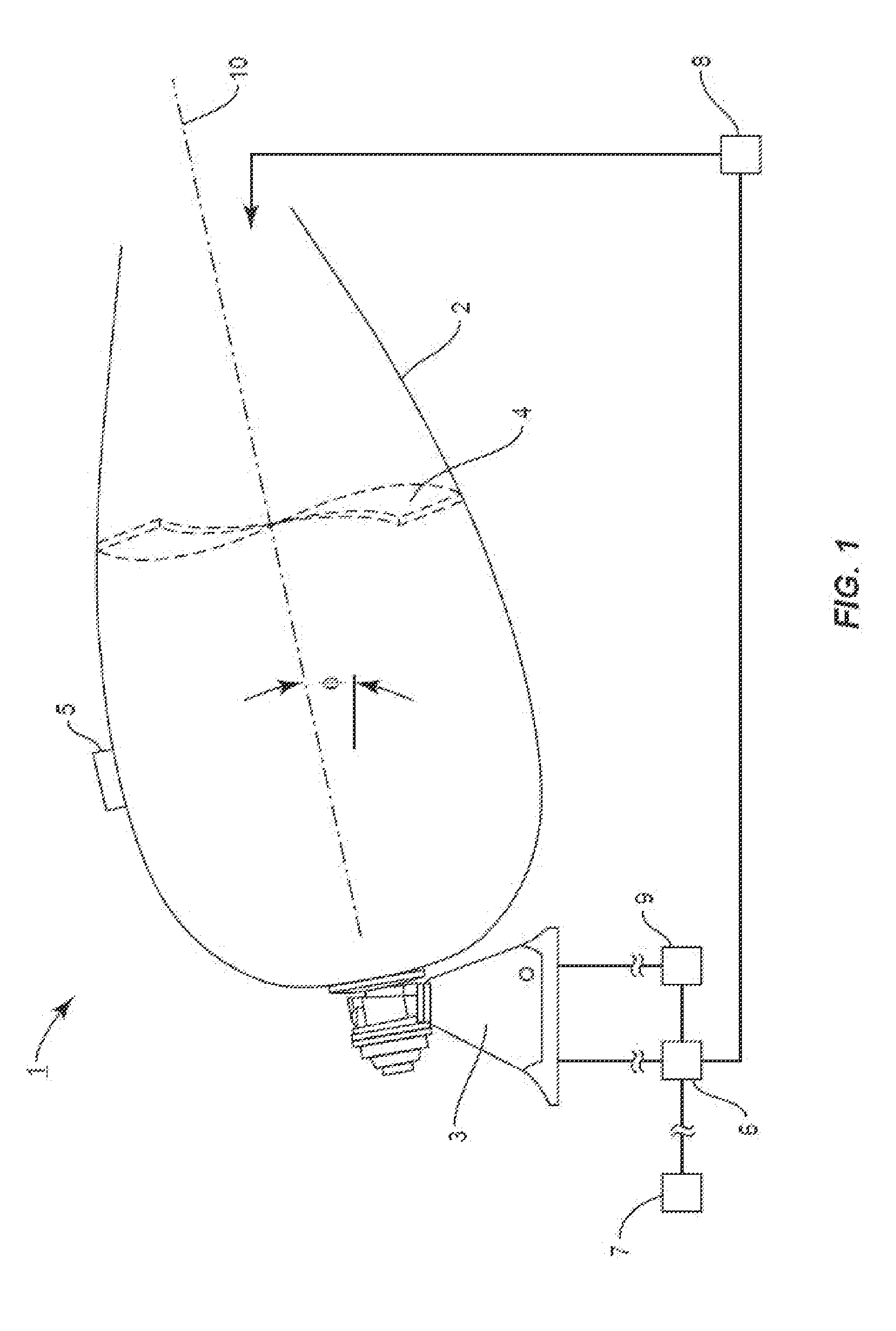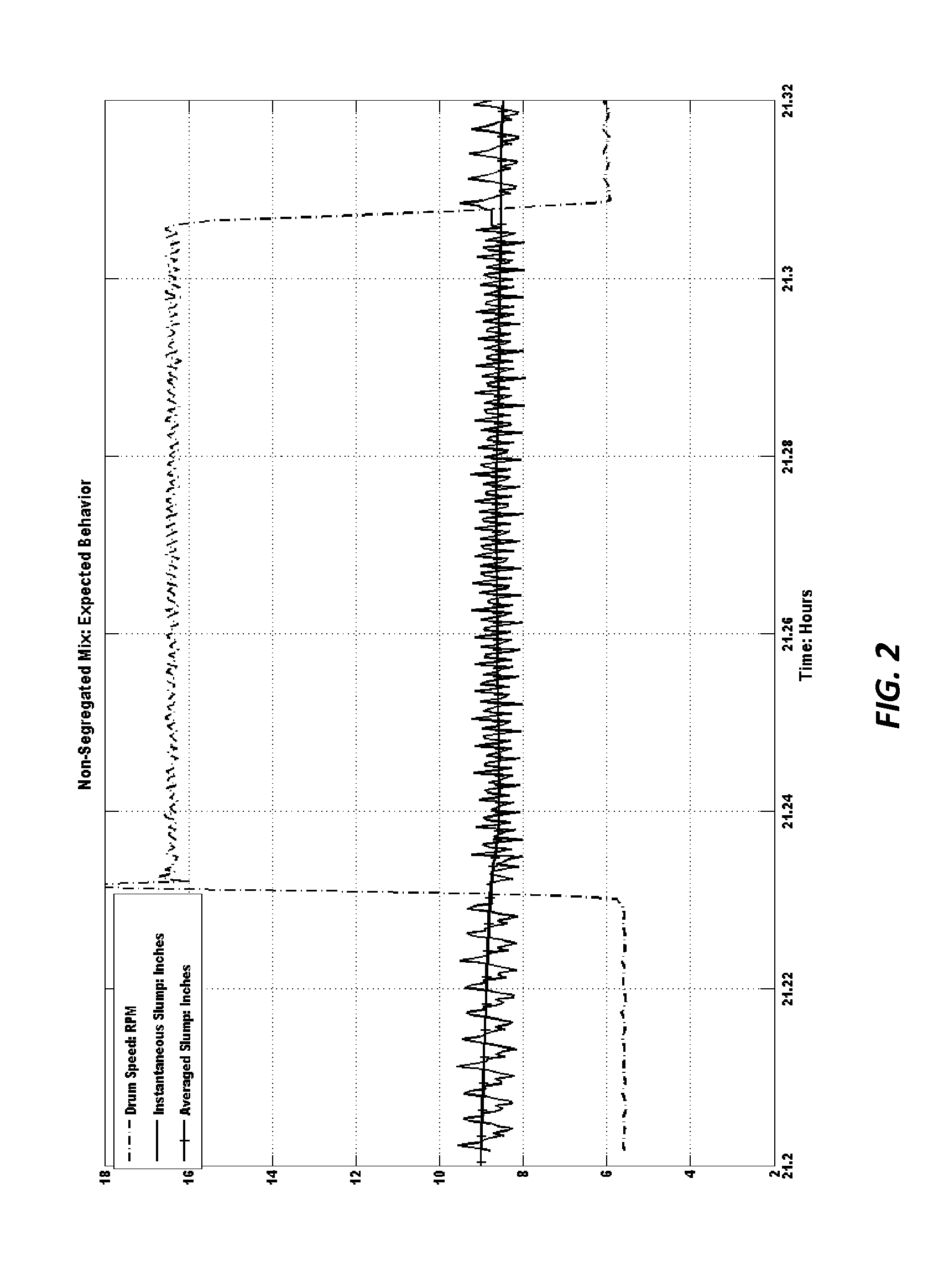Dynamic segregation monitoring of concrete
a technology of segregation monitoring and concrete, applied in the field of manufacture and processing of concrete, can solve the problems of concrete segregation, weak, porous, non-durable structure, job delays and cost increases,
- Summary
- Abstract
- Description
- Claims
- Application Information
AI Technical Summary
Benefits of technology
Problems solved by technology
Method used
Image
Examples
Embodiment Construction
[0033]The present invention now will be described more fully hereinafter with reference to the accompanying drawings, in which various exemplary embodiments are shown illustrating variations within the scope of the invention. This disclosure may, however, be embodied in many different forms and should not be construed as limited to the embodiments set forth herein; rather, these embodiments are provided so that this disclosure will be thorough and complete and fully convey the scope of the invention to those of ordinary skill in the art.
[0034]The term “cement” as used herein includes hydratable cement such as Portland cement which is produced by pulverizing clinker consisting of hydraulic calcium silicates, aluminates and aluminoferrites, and one or more forms of calcium sulfate (e.g., gypsum) as an interground additive. Portland cement may be combined with one or more supplemental cementitious materials, such as fly ash, granulated blast furnace slag, limestone, natural pozzolans, ...
PUM
| Property | Measurement | Unit |
|---|---|---|
| rheology | aaaaa | aaaaa |
| hydraulic pressure | aaaaa | aaaaa |
| constant rotation speed | aaaaa | aaaaa |
Abstract
Description
Claims
Application Information
 Login to View More
Login to View More - R&D
- Intellectual Property
- Life Sciences
- Materials
- Tech Scout
- Unparalleled Data Quality
- Higher Quality Content
- 60% Fewer Hallucinations
Browse by: Latest US Patents, China's latest patents, Technical Efficacy Thesaurus, Application Domain, Technology Topic, Popular Technical Reports.
© 2025 PatSnap. All rights reserved.Legal|Privacy policy|Modern Slavery Act Transparency Statement|Sitemap|About US| Contact US: help@patsnap.com



